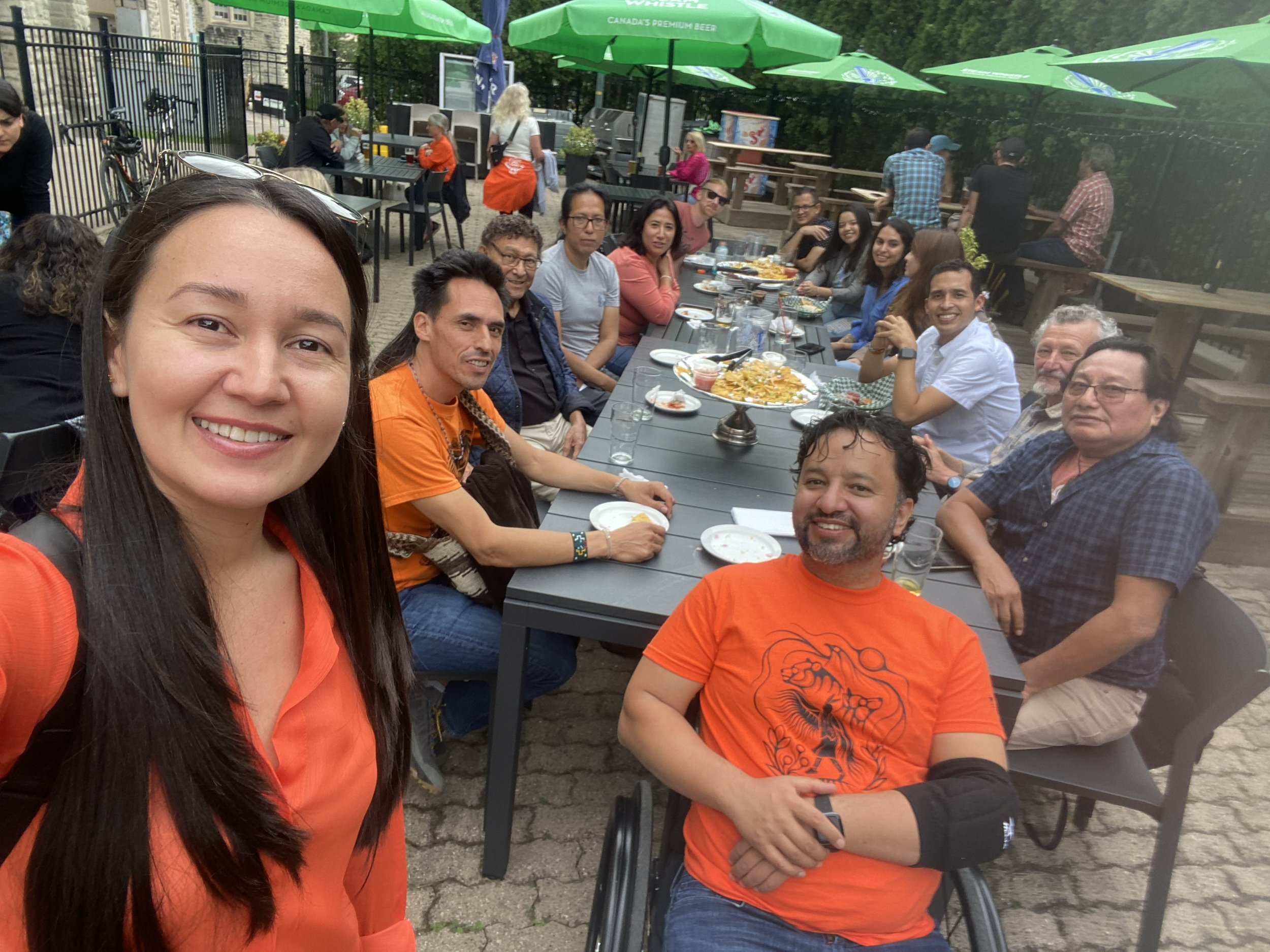
Coloquio Interdisciplinario 2023-24
September 29, 2023
“Returning to Ourselves: Activating Indigenous Beats.”
Dr. Juan Guillermo Sánchez, Lakehead University (PhD Western 2014)


Abstract: As part of the Activating Indigenous Beats: Hip Hop Nativo Festival (2023), a mobile cross-cultural mural was envisioned by the organizers Correne Anderson and Juan G. Sanchez Martinez. The mural can be understood as a non-alphabetic pedagogical tool, to spark dialogues on identity, belonging, Native Science, and Indigenous epistemologies and sovereignty. Local artists and educators Byron Tenesaca (kichwa-kañari), Jakeli Swimmer (Eastern Band of the Cherokee Indian–EBCI), and Abel Gonzalez Bueno (Hñahñü) were invited to lead the collective project. Weaving the encounter between Native peoples in Tokiyasdi / Asheville (Anikituwagi ancestral territory), the Activating Indigenous Beats Mural is a homage to the chakaruna, the bridge-people in the Quechua language, the ones who dedicate their lives to connecting communities and seeding solidarity. Based on the Festival and the mural, this talk will reflect on the importance of trans-Indigenous dialogues between the North and the South of Abiayala (the Americas).
Speaker Bio: Juan Guillermo Sánchez Martínez was born in Bakatá/Bogotá, in the Colombian Andes. He coordinates the online multilingual anthology and exhibition Siwar Mayu, A River of Hummingbirds. He has published the following books of poetry: Uranio (2023), Bejuco (2021), Salvia (2014), Río (2010), and Altamar, awarded with the National Prize in Colombia in 2016 (University of Antioquia). In 2019, he co-edited the volume Muyurina y el presente profundo with quechua writer Fredy Roncalla (Pakarina/Hawansuyo), and he is currently co-editing Abiayalan Pluriverses. Bridging Indigenous Studies and Hispanic Studies with Gloria E. Chacón and Lauren Beck (Amherst College, 2023). He is an Associate Professor in the Department of Indigenous Learning at Lakehead University (Thunder Bay, Canada).
